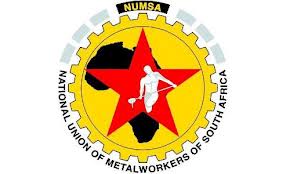The Steel and Engineering Industries Federation of Southern Africa (Seifsa) has accepted Labour Minister Mildred Oliphant’s proposal to offer wage increases of 10% to low-level employees in the metals and engineering sector over three years.
Oliphant met with all the parties involved in the negotiations at the weekend in an attempt to bring an end to the strike, now in its fourth week. Although Seifsa has accepted the ministerial offer, it has insisted on the need for Section 37 of the Main Agreement of the Metal and Engineering Industries Bargaining Council to be tightened up in order to protect employers from double dipping. Numsa must accept by Friday “A slim majority of employer associations affiliated to the federation agreed to a 10% wage increase for low-level employees over the next three years, on condition that the offer is accepted by the unions not later than Friday 25 July,” Seifsa said in a statement. “An overriding condition for the proposal’s acceptance was that the unions agreed to an inclusion of a clause in the main agreement which indicated that matters that would materially impact on the cost of employment would not be raised for negotiation at company level.” The conditionally-approved wage offer is 10% for rates F, G and H in 2014, for rates G and H in 2015 and for rate H in 2016, and 8% in 2014, 7.5% in 2015 and 7% in 2016 respectively for rate A. Seifsa Chief Executive Officer Kaizer Nyatsumba said that members of the federation overwhelmingly reiterated their position that they would not sign any settlement agreement until their concerns about recent Labour Court judgments regarding Section 37 were addressed. He said that they wanted the section amended to confirm its original intention, when the clause was introduced into the Main Agreement in 1992, that all matters which could materially add to the cost of employment would be negotiated collectively in the Bargaining Council. “Our members are bitterly disappointed about the fact that they have made numerous concessions, including offering unaffordable increases that are considerably above inflation and threaten their businesses, but have got absolutely nothing in return. Not only will they not go beyond the wage offer brokered by the Minister and her team, but they will also simply not budge on Section 37,” said Nyatsumba.He said that the high wage increases proposed by the minister in order to end the current strike in the sector would inevitably lead to “massive job losses” as companies sought to reduce their costs since they could not pass the increases on to their customers.
Neasa rejects ministerial offer The National Employers’ Association of South Africa (Neasa) however has turned down the proposal by the ministerial team. “The ministerial team of the Department of Labour has tabled a settlement proposal further out of reach of SMMEs. What is particularly disappointing is that the ministerial team proposed a settlement arrangement which may satisfy the trade unions but accelerate job losses in the metal industry,” said Neasa Chief Executive Gerhard Papenfus. Papenfus argued that while the on-going industrial action is costing the industry and the economy dearly and Neasa is just as keen as everyone involved to see an end to the strike, a deal cannot be made simply for the sake of bringing an end to the strike. “The long term consequences also need to be considered,” he said. He stressed that a short-sighted settlement will end this strike but will lead to long-term hardship across the board and will eventually bring about socio-economic instability. “We urge the unions to look beyond the short-term interests of their members and to act in the long-term interests of the industry, which will bring about more sustainable benefits for everybody.”






